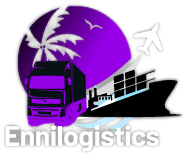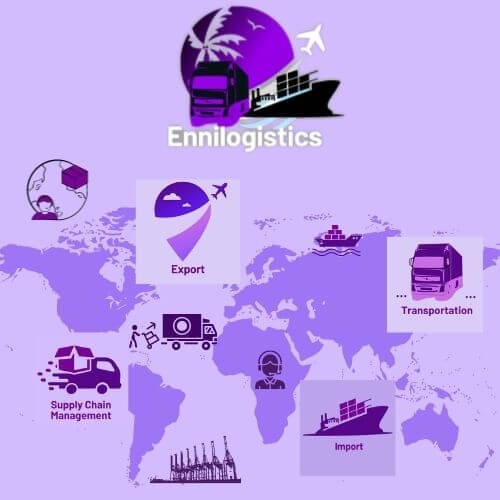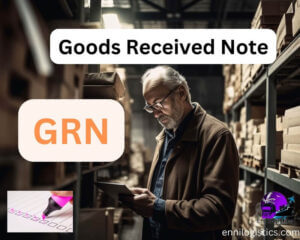When exporting goods most of the time certification requirements vary with the product type and also importing country requirements. An exporter needs to fulfill certificate requirements according to import country import procedures and requirements. This article covered by required certificates for export from Sri Lanka.
1. GSP certificate
What is GSP certificate?
GSP stands for Generalized System of Preferences
Also known as certificate of origin form A
Issued by the department of commerce
This certificate is required for the customs clearance process at importing country.
The GSP (Generalized System of Preferences) certificate is a document used in export to get preferential trade benefits. It allows eligible developing countries to export certain products to developed countries at reduced or zero tariff rates. The certificate proves that the goods qualify for these preferential treatments, promoting economic growth and trade between nations.
How to obtain for GSP or certificate of origin from A in Sri Lanka?
you can reach the Department of Commerce website for further details
http://www.doc.gov.lk/index.php?lang=en
You can apply for this certificate online by clicking here link
Digital signature
2. Certificate of Origin
What is a certificate of origin?
certificate of origin also known as a CO or COO. It is a certification that a particular product is manufactured or a product from that relevant country. In other words, we can sys the certificate of origin mentioned nationality of the products.
Why need a certificate of origin?
the main purpose of a certificate of origin is to prove that the shipment or product’s made in or manufacturing country.
For customs clearance purposes.
It may be a mandatory document for the importer’s bank when obtaining the Letter of credit(L/L) facility.
What e-certificate of origin?
E certificate of origin is a certificate of origin that is generated electronically
exporter can submit requests and required documents for obtaining a certificate of origin online. The relevant chamber of commerce issues a digital certificate of origin with an electronic stamp.
Who needs to apply certificate of origin?
The exporter needs to apply for a certificate of origin that mentions the country of origin.
Who issues certificates of origin?
Country of origin’s chamber of commerce.
How to obtain a certificate of origin?
As an exporter, you can apply for a certificate of origin through a freight forwarder or customs house agent. Otherwise, you can apply it directly to the chamber of commerce of the exporter’s country. You need to fill details form for the certificate of origin with the required documents. Some countries provide facilities for applying e certificates of origin. then you can submit details and supporting documents online.
What are the details included in the certificate of origin?
- Exporter details: names and address contact number.
- Manufacturer or producer details: required if the difference from the exporter
- consignee/ importer or receiver’s name and contact details
- HS code of the goods
- Description of the goods
- quantity and weight of the packages
- number of packages
- The country of origin
- Bill of lading number or airway bill number.
- Type of the shipment: LCL or FCL
- Marks and numbers
- declaration by the chamber
- declaration by the exporter
- Voyage details: voyage number
- vessel name
- port of loading
- port of discharging
- Export invoice number and date
Samples of certificate of origin
you can see samples of certificate of origin by clicking the below links
Incodocs certificate of origin sample
templates for a certificate of origin
further readings for a certificate of origin
3. Quality Certificate
Quality certificates are issued by national authorities such as SLSI, ITI, SGS lanka pvt limited, etc. Quality certificate issuing body depending on the type of the products.
most of the quality certificates issued by SLSI.But is depends on ion the product.
SLSI permit(Sri Lanka Standards Institute)
What is an SLSI permit?
Relevant permit issuing authority Name – Sri Lanka Standards Institute
address:
Sri Lanka Standards Institute
No.17, Victoria Place, (Lane adjoining Telecommunication Regulatory Commission)
Elvitigala Mawatha,
Colombo 08.
Sri Lanka.
What are the products that need SLSI-as examples:
coconut oil, noodles
ceramic tiles, batteries, tires, bulbs, switches, helmets, etc.
4. Health Certificate
Most of the importing countries required health certificates for special products to be exported such as meat, fish, or live animals.
Health certificates for meat, fish, and live animals are issued by the Department of animal production and Health.
examples of health certificates obtaining authority.
Fish: Department of Fisheries and Aquatic Resources
New Secretariat Maligawatta, Colombo 10,
Tel: +94 112 446 183 +94 112 973 138
Email: [email protected] [email protected]
Website: https://www.fisheriesdept.gov.lk/
steps for obtaining a health certificate
need to submit required documents(application form and other documents)
Then need to pay for the process
After that, you can obtain a health certificate for the export process
For the food items health certificates are issued by the Food Control Administrative Division, Ministry of Health in Sri Lanka.
5. Phytosanitary Certificate
Phytosanitary certificate is confirming the plant or plant product’s health status when exporting. Each and every consigmnet needs relevant Phytosanitary certificates for exporting.This certificate is required for exporting perishable products as listed below,
- fruits
- vegetables
- cut flowers
- Foliage plant
- tea
Phytosanitary Certificate issued by Plant Quarantine Service of the Department of Agriculture.
Steps to obtain a Phytosanitary certificate
Consignment registration at the plant quarantine station
Apply for Phytosanitary certificates online (for selected countries only)
when consignment inspection they check the whole consigmnet before the issuing certificate. At that time need to submit a packing list.
then need to pay for the process
now you can obtain a Phytosanitary certificate.
6. Fumigation Certificate/Pest Control Certificate
A Fumigation Certificate is a document issued by a certified pest control or fumigation company that certifies that a specific consignment.
Which are undergone a fumigation process to eliminate or prevent the presence of pests, insects, and other contaminants.
This certificate is often required by importing countries to ensure that the imported goods do not introduce harmful pests or diseases into their ecosystems.
Fumigation is a method of pest control that involves using chemicals or gases to eliminate or control pests, such as insects, rodents, and fungi, that can damage or contaminate goods during transportation and storage. The fumigation process is conducted in a controlled environment, such as a sealed container or storage facility, to effectively treat the goods and ensure that pests are eradicated.
fumigation certificates need when exporting agricultural products. such as
- cut flowers foliage plants
- sesame seeds
- cashew nuts
- tea
- wood packaging materials
fumigation certificate issued by the plant quarantine service of the Department of Agriculture
And also approved private bodies have the authority to do fumigation activities
You may like to read,
15 Essential Shipping Documents
Certificate Of Origin: Everything You Need To Know
Free Re-Import Certificate(FRIC)-Everything You Need To Know
What Are The Import Licenses And Approvals Required In Sri Lanka?
Export Business Ideas for Organic and Natural Products
Export Business Ideas for seeds: Make money from Unused Seeds
Top 14 Freight Forwarding Companies In Sri Lanka 2023: Contact Deatils








